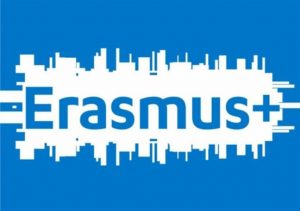Erasmus Programme
 The Erasmus programme implemented by the European Commission enables different types of activities, supports international cooperation of higher education institutions, enables students to go abroad for part of their studies and placements, facilitates mobility of university staff and provides opportunities for universities to participate in international projects with foreign partners.
The Erasmus programme implemented by the European Commission enables different types of activities, supports international cooperation of higher education institutions, enables students to go abroad for part of their studies and placements, facilitates mobility of university staff and provides opportunities for universities to participate in international projects with foreign partners.
In over 30 years, more than 3 million students, the main beneficiaries of the programme, have benefited from this EU programme (Erasmus Lifelong Learning Programme – LLP; formerly the Socrates component).
Among the benefits students derive from participating in such trips, the most frequently cited are: gaining practical knowledge, developing skills and motivation for self-study, learning and improving foreign language skills, increasing chances of getting a good job and greater „self-confidence”, resourcefulness, tolerance and openness to other cultures. The programme provides an opportunity to live in a foreign country for the first time, and one in ten people find their life partner while studying abroad. Erasmus has become a style and a way of life. Many reports, analyses and memoirs have been written about this phenomenon. Numerous websites and forums have been created, as well as portals for exchanging information about going to universities abroad. Organisations and associations have been created, congresses and conferences directly related to Erasmus are organised. Year by year, the programme is becoming more popular, more recognisable and the number of its beneficiaries is constantly growing.
On 1 January 2014, the Erasmus+ programme, which supports education, training, youth and sport initiatives across Europe, was launched. Up to 5 million young people, students and adults will gain experience and skills by studying, training or volunteering abroad through Erasmus+. In addition, the programme will support cooperation between around 115 000 institutions and organisations active in all sectors of education.
The new programme is more ambitious and strategic, while retaining its key objectives of improving skills and employability, and supporting the modernisation of education and training systems and youth programmes. Erasmus+ will develop synergies between different education sectors and the world of work. There will be one programme instead of many, simplifying application rules and procedures and avoiding fragmentation and duplication.
The Erasmus+ programme has several new elements: erasmus2

Knowledge Alliances, which are partnerships between higher education institutions and businesses to foster creativity, innovation and entrepreneurship by offering new curricula, learning opportunities and qualifications;Sector Skills Alliances, which are partnerships between VET providers and enterprises to promote employability and address skills gaps in the labour market through the development of new sectoral curricula and innovative forms of VET.
Merging previously separate programmes related to the international dimension of higher education, which will facilitate mobility at university level between the EU and third countries.
The programme will cover:
- EU Member States,
- Accession and Candidate Countries and potential candidates,
- the ESWH countries (Iceland, Liechtenstein, Norway and Switzerland).
Other countries will also be able to participate in the programme, although the extent to which their participation will be supported has not yet been specified. Their participation is classified as cooperation with partners from third countries and will almost certainly involve countries neighbouring the European Union (Algeria, Armenia, Azerbaijan, Belarus, Egypt, Georgia, Israel, Jordan, Lebanon, Libya, Moldova, Morocco, Occupied Palestinian Territory, Syria, Tunisia and Ukraine; in addition, Russia is considered a neighbouring country for the purpose of youth activities).
Erasmus+ will contribute to combating youth unemployment by helping young people acquire key skills such as proficiency in foreign languages, ability to relate to people and adapt to new environments, giving them the opportunity to learn how to live and work with people of different nationalities and cultures.
Erasmus+ will facilitate cooperation between universities and employers to ensure that students benefit from study programmes tailored to the skills they need on the labour market. The programme will also help education establishments and youth organisations to forge closer links with the business sector.
Erasmus+ also attaches great importance to informal learning. There is every indication that employers value skills acquired through non-formal learning, such as voluntary work. This is confirmed by participants in the European Voluntary Service: 75% of them say that their job prospects have improved thanks to this experience. Research also shows that students who have spent part of their studies abroad are more likely to get their first job in another country.
 In the new programme, it will be possible to use Erasmus+ funding for study and training abroad more than once. Students will be able to go abroad to study (minimum 90 days) or train (minimum 60 days) for up to 12 months in each study cycle (bachelor’s, master’s), regardless of the type of mobility (study or work placement) and the number of mobility periods (for example, two periods of six months each or three periods of four months each). However, higher education institutions may give preference to students who have never participated in a mobility programme abroad. Previous participation in an Erasmus exchange under the Lifelong Learning Programme will be taken into account for students applying for an Erasmus+ grant within the same study cycle. For example, if a student has received an Erasmus grant in the past under the LLP for six months of study at Masters level, then they can still benefit from an Erasmus+ grant for Masters level study, but up to a maximum of six months. However, if the same student goes on to study for a doctorate, he or she can receive support from Erasmus+ for up to 12 months, as this is a higher cycle of study.
In the new programme, it will be possible to use Erasmus+ funding for study and training abroad more than once. Students will be able to go abroad to study (minimum 90 days) or train (minimum 60 days) for up to 12 months in each study cycle (bachelor’s, master’s), regardless of the type of mobility (study or work placement) and the number of mobility periods (for example, two periods of six months each or three periods of four months each). However, higher education institutions may give preference to students who have never participated in a mobility programme abroad. Previous participation in an Erasmus exchange under the Lifelong Learning Programme will be taken into account for students applying for an Erasmus+ grant within the same study cycle. For example, if a student has received an Erasmus grant in the past under the LLP for six months of study at Masters level, then they can still benefit from an Erasmus+ grant for Masters level study, but up to a maximum of six months. However, if the same student goes on to study for a doctorate, he or she can receive support from Erasmus+ for up to 12 months, as this is a higher cycle of study.
According to the European Commission, 20% of all students in the European Union should participate in international exchanges by the end of 2022. This means that, in order to meet these requirements, every effort must be made at our university to increase international exchange in order to enable as many students as possible to take advantage of scholarship offers abroad for both studies and placements.
